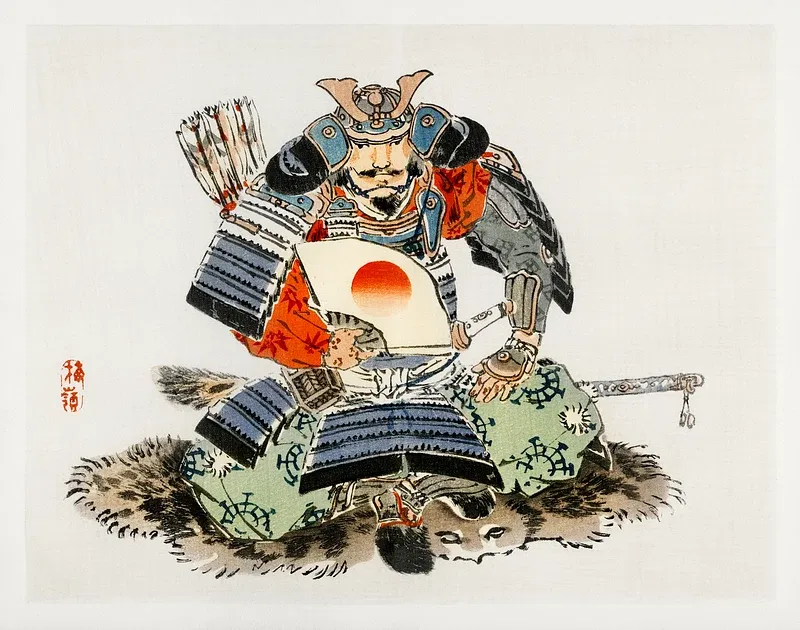The samurai, often seen as the epitome of the ancient Japanese warrior class, have fascinated historians and enthusiasts alike for centuries. Their tales of bravery, loyalty, and martial prowess echo through the annals of history, painting a vivid picture of Japan’s feudal past. In this blog, we will explore some of the most famous samurai, their significant contributions, and the periods that shaped their lives.
Key Historical Periods
Understanding the context in which these samurai lived and fought is crucial. Several key historical periods were particularly significant for the emergence of these legendary warriors:
1. The Genpei War (1180-1185)
This war marked the conflict between the Taira and Minamoto clans, leading to the establishment of the Kamakura Shogunate. Many celebrated samurai emerged during this turbulent time.
2. The Sengoku Period (1467-1590)
Also known as the “Warring States Period,” this era was characterized by social upheaval, political intrigue, and near-constant military conflict. It produced some of the most famous daimyo (feudal lords) and samurai.
3. The Shogunates
- Kamakura Shogunate: The first shogunate, which established the feudal system in Japan.
- Tokugawa Shogunate: The last shogunate, which brought about a long period of peace and stability.
Most famous Samurai Figures
Tomoe Gozen
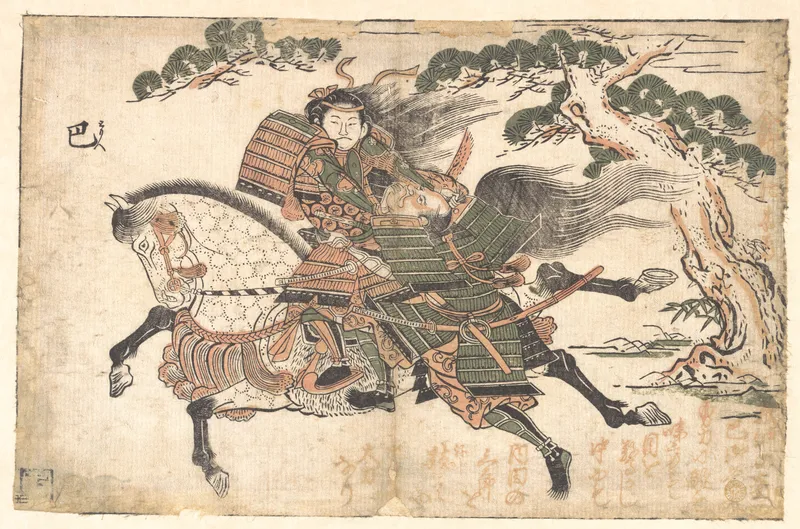
One of the few women to be recognized as a samurai, Tomoe Gozen was a formidable warrior during the Genpei War. She was known for her exceptional skills in archery and horseback riding. As a chief of cavalry, her exploits in battle were legendary.
Kusunoki Masashige
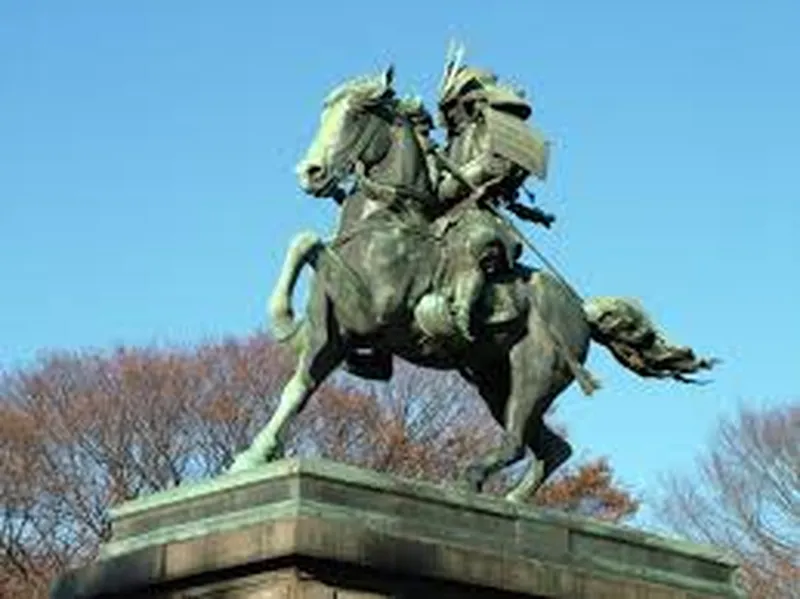
A paragon of loyalty, Kusunoki Masashige served Emperor Go-Daigo during the Kamakura Shogunate. His strategic brilliance was evident in the defense of Chihaya, where he utilized guerrilla tactics to outmaneuver a much larger enemy force.
Yasuke
Unique among samurai, Yasuke was an African warrior who served under Oda Nobunaga during the Sengoku Period. His journey from a foreign land to becoming a trusted samurai highlights the diversity and complexity of samurai history.
Miyamoto Musashi
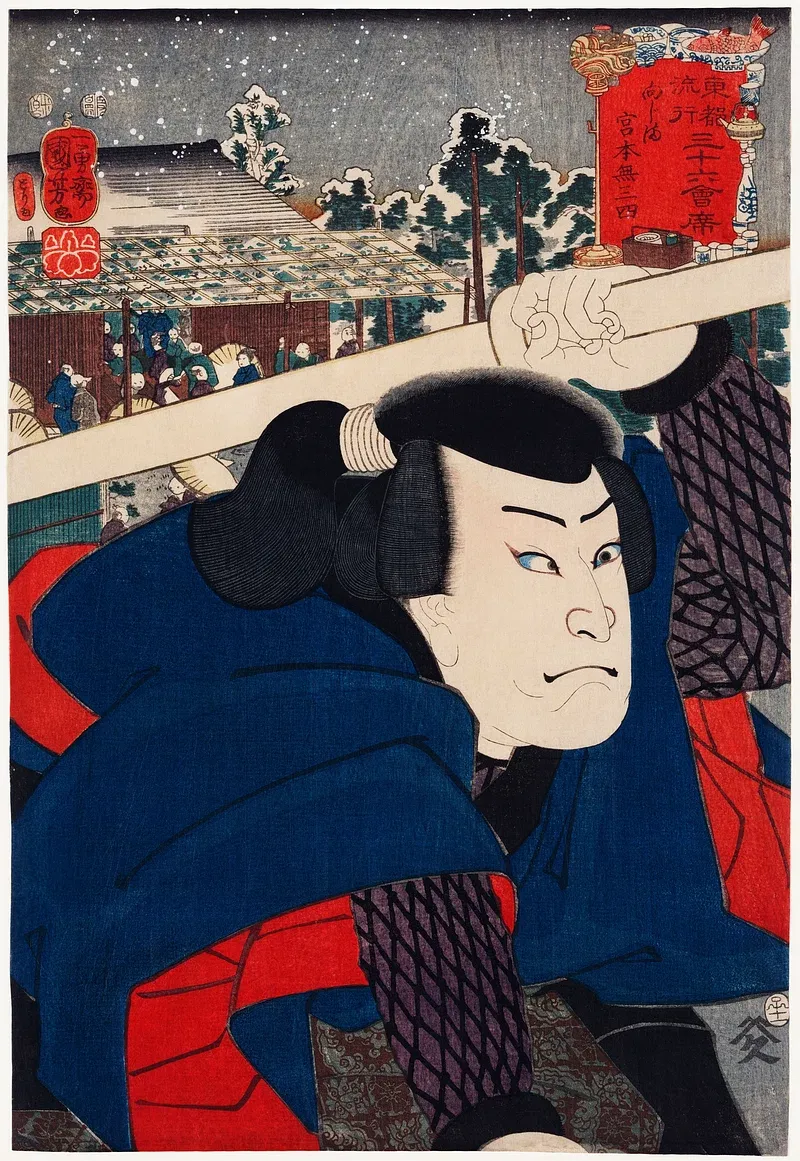
Renowned for his unparalleled swordsmanship, Miyamoto Musashi was a master duelist and the author of “The Book of Five Rings.” His life and teachings have made him one of the most revered figures in samurai lore.
Minamoto no Yoshitsune
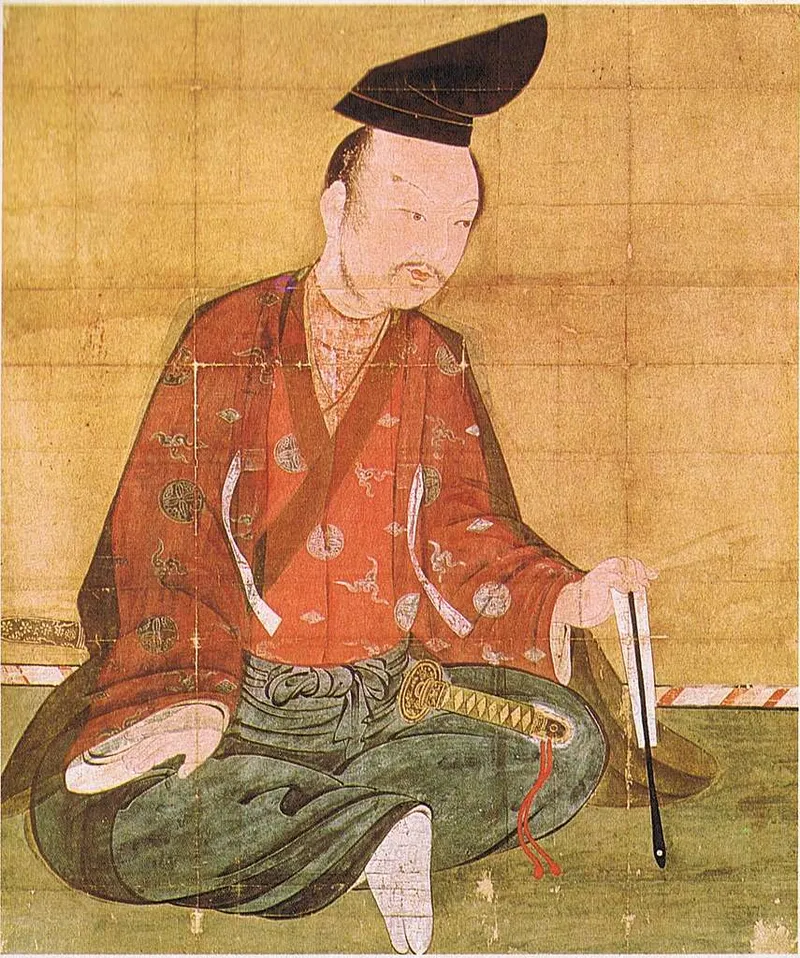
A hero of the Genpei War, Minamoto no Yoshitsune’s tactical genius and tragic life story have made him a legendary figure in Japanese history. His exploits and eventual downfall have been the subject of countless literary and dramatic works.
Tokugawa Ieyasu
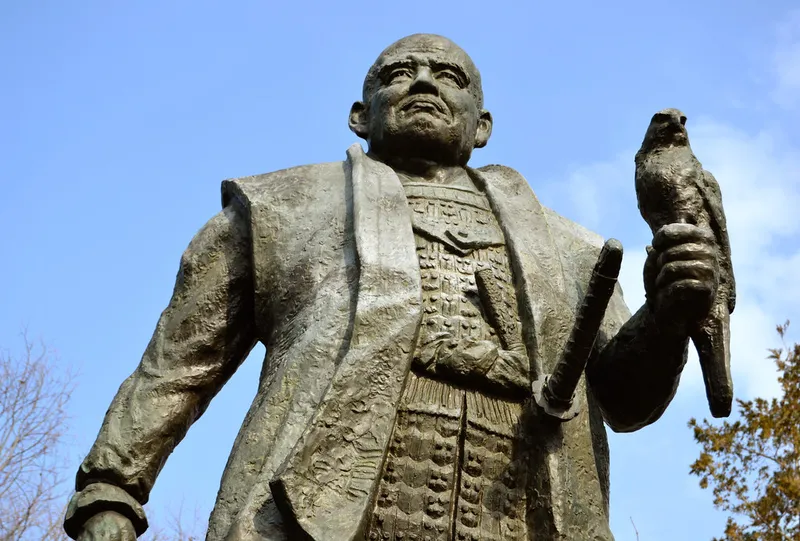
As the founder of the Tokugawa Shogunate, Tokugawa Ieyasu played a pivotal role in unifying Japan. His leadership ushered in a period of peace that lasted for over two centuries, known as the Edo Period.
Oda Nobunaga
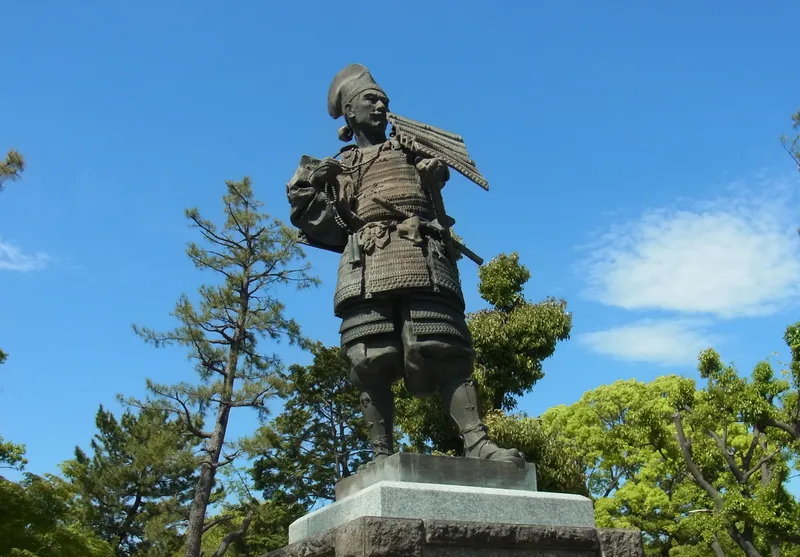
A key figure in the reunification of Japan during the Sengoku Period, Oda Nobunaga was a brilliant strategist and a ruthless leader. His efforts laid the groundwork for the eventual unification of the country.
William Adams (Miura Anjin)
An English navigator who became a samurai, William Adams served under Tokugawa Ieyasu and played a crucial role as a diplomat and shipbuilder. His unique story as a foreign-born samurai adds an interesting dimension to the samurai narrative.
Characteristics of the Samurai
Military Valor
The samurai were renowned for their bravery and martial prowess. Their skills in combat, honed through rigorous training and battlefield experience, were unmatched. The ability to remain composed under pressure and face overwhelming odds with courage was a hallmark of the samurai spirit.
Loyalty
Loyalty was a core tenet of the samurai code, known as Bushido. Samurai were expected to serve their lords with unwavering devotion, often at the cost of their own lives. This loyalty extended to the emperor and the nation, embodying the samurai’s sense of duty and honor.
Notable Samurai Exploits
| Name | Period | Notable Exploits |
|---|---|---|
| Tomoe Gozen | Genpei War | Cavalry leader, battle survivor |
| Kusunoki Masashige | Kamakura Shogunate | Defender of Chihaya, loyal to Emperor Go-Daigo |
| Yasuke | Sengoku | African samurai, servant of Oda Nobunaga |
| Miyamoto Musashi | Post-Warring States | Duel master, author of “The Book of Five Rings” |
| Minamoto no Yoshitsune | Genpei War | Leader, tragic hero |
| Tokugawa Ieyasu | Edo Period | First Tokugawa shogun, unifier of Japan |
| Oda Nobunaga | Sengoku Period | Reunification initiator, strategist |
| William Adams (Miura Anjin) | Early Edo Period | Navigator, shipbuilder, diplomat |
Common Samurai Names and Their Significance
The names of samurai often carried great significance and were reflective of their heritage, achievements, and family lineage. Here are some common and notable samurai names:
- Minamoto: A prestigious clan name, often associated with the Minamoto no Yoshitsune.
- Tokugawa: The family name of Tokugawa Ieyasu, symbolizing the shogunate’s ruling dynasty.
- Oda: The clan name of Oda Nobunaga, a key figure in Japan’s unification.
- Miyamoto: Associated with Miyamoto Musashi, this name has become synonymous with master swordsmanship.
Foreign-Born Samurai
The inclusion of foreign-born samurai like William Adams (Miura Anjin) and Yasuke underscores the cosmopolitan nature of Japan during certain historical periods. These figures not only adapted to Japanese culture but also significantly contributed to the domains they served.
The legacy of the samurai is a tapestry woven with threads of valor, loyalty, and strategic brilliance. From the early days of the Genpei War to the unification efforts of the Sengoku Period and the stability of the Tokugawa Shogunate, these ancient Japanese warriors have left an indelible mark on history. Whether exploring the life of a female samurai like Tomoe Gozen or the unique story of Yasuke, the samurai continue to captivate and inspire. Their tales are a testament to the enduring allure of Japan’s rich and complex history.
By understanding the lives and contributions of these great samurai, we gain insights into not just their individual stories but also the broader historical and cultural contexts that shaped Japan. Whether you are a history enthusiast or simply intrigued by the mystique of the samurai, these legendary figures offer a fascinating glimpse into a bygone era of honor and heroism.

